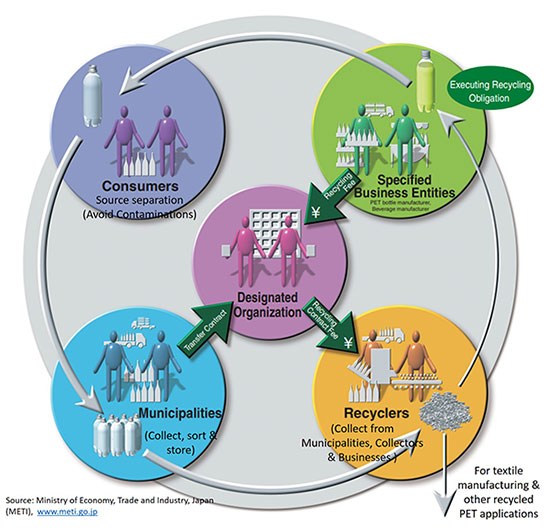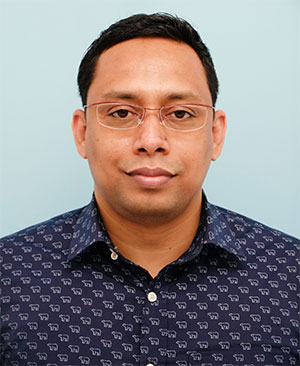Business
Bottle-to-bottle recycling can boost Sri Lanka in the transition to circularity in plastics

By Amila Abeynayaka
Dr. Abeynayaka is a Policy Researcher currently attached to the IGES Centre Collaborating with UNEP on Environmental Technologies (CCET), Institute for Global Environmental Strategies (IGES), Japan.
Pollution caused by the irresponsible disposal of plastics is a significant issue, particularly in developing countries like Sri Lanka.
 According to Great Britain’s Royal Statistical Society, it is estimated that only 9% of all plastics ever produced globally has been recycled. This is particularly concerning since according to the United Nations Environment Programme (UNEP), all nations collectively produce about 300 million metric tonnes of plastic every year – nearly equivalent in weight to that of the entire global human population.
According to Great Britain’s Royal Statistical Society, it is estimated that only 9% of all plastics ever produced globally has been recycled. This is particularly concerning since according to the United Nations Environment Programme (UNEP), all nations collectively produce about 300 million metric tonnes of plastic every year – nearly equivalent in weight to that of the entire global human population.
However, not all plastics are equal in this equation. Polyethene terephthalate (PET) plastics, in particular, stand out, given that they are 100% recyclable. PET is considered the most promising food-packaging plastic for recycling and is used extensively for this purpose, particularly for the production of bottles containing drinks, hand sanitisers, dishwashing liquid etc. In addition, PET is more suitable for the recycling process, given its ability to minimise the possibility of contamination following consumption.
Hence, in sharp contrast with the overall recycling rate of plastics, PET bottle recycling rates in some countries exceed 80%. Sri Lanka also aspires to increase its PET bottle collection and recycling rate from 27% to 100% by 2025 to ‘ensure safe, high-quality and durable products,’ as per the National Action Plan on Plastic Waste Management in Sri Lanka (NAPPWM).
The changes required
Technology is not a constraint and is already available within the country. However, achieving this target requires crosscutting enabling conditions, including legal arrangements and policy changes, stakeholder engagement and dialogue, public participation, financing, and capacity development.
Legal and policy changes are necessary for a crucial shift towards bottle-to-bottle recycling. This relates to recycling an entire PET bottle to produce a new PET bottle, a concept that has been successfully implemented in many developed regions.
After being used by consumers, the three common scenarios for PET bottles are; bottle-to-bottle recycling, incineration and landfill disposal.
It is clear that bottle-to-bottle recycling is by far the preferred option among these options. It reduces pollution and carries a host of other benefits, including reducing carbon emissions by decreasing the need for new plastics.
However, Sri Lanka doesn’t legally allow recycled products in food-grade manufacture. The Extraordinary Gazette Notification No. 1160/30 of 29th June 2010 prohibits the use of ‘any food in any package, appliance, container or vessel that has been made from recycled plastic.’ This reality needs to change and conducive regulations/policies should be introduced.
Implementing the changes
In terms of implementation, bottle-to-bottle recycling can be done through two methods; mechanical and chemical recycling. The first refers to using mechanical processes (which typically involve cleaning, grinding, re-melting, and re-granulating). It is considered that through this method, bottle-to-bottle recycling is possible up to 4 to 6 times for PET plastics.
Chemical recycling, in contrast, uses a chemical process to achieve this objective, to break down the material to its original form for processing and, after that, for the production of new items. This system allows potentially infinite cycles of recycling. Still, it has implications for the comparatively larger generation of carbon emissions associated with transboundary PET waste movements.
Besides the method of recycling that should be employed, another critical consideration is whether bottle-to-bottle recycling carries risks since the plastics could potentially get contaminated, especially in food-grade packaging. For instance, contact between plastics and other waste, such as electronic waste, increases the risk of the presence of toxic metals in recycled plastics.
However, such concerns can be addressed by putting the necessary safeguards in place by adopting models similar to those of developed countries. For instance, in the European Union (EU), recycled plastics used in food contact materials should only be obtained from recycling processes that have been assessed for safety by the European Food Safety Authority and authorised by the European Commission.
Transition to a ‘circular’ model
Such certification ensures the separation of different types of waste, domestic waste collection systems with storage and transportation that avoid contaminations and sound tech-driven recycling. Another alternative exists, too, including chemical recycling to regenerate material similar to virgin material.
However, such efforts require collaboration between and high levels of awareness among all stakeholders. This includes manufacturers and recyclers in the private sector, consumers and the Government. The model used in Japan provides an excellent case study. In this model, consumers ensure proper segregation of used plastic containers and packages, which facilitates the collection of the segregated waste by the Municipal Government. Manufacturers recycle this waste and, after that, use it in products. Hence, all stakeholders play an equally-critical role, which ensures the smooth functioning of the system.
Sri Lanka too can transition to a similar model, with high ‘circularity,’ which involves a ‘closed loop’. In this, the value of plastics is retained through reuse and recycling, not allowing leakage into the environment. This is unlike the present ‘linear’ model in which plastics are used and disposed of, creating significant damage.
Such a model will be beneficial economically – for instance, by reducing foreign exchange lost through imports of plastics each year and socially and environmentally – by reducing pollution and its harmful effects – which includes the likes of the increased spread of diseases such as dengue.
Hence, Sri Lanka should begin the transition towards bottle-to-bottle recycling of PET plastics. However, as indicated, this requires the support of all stakeholders.
The author would appreciate your feedback on the article. You can start a conversation with Dr. Abeynayaka directly on Twitter on @litterlifecycle.
Web: www.iges.or.jp/en | www.ccet.jp
Transforming “waste” into “resources” once again (a Japanese example)
Business
AHK Sri Lanka champions first-ever Sri Lankan delegation at Drupa 2024

The Delegation of German Industry and Commerce in Sri Lanka (AHK Sri Lanka) proudly facilitated the first-ever Sri Lankan delegation’s participation at Drupa 2024, the world’s largest trade fair for the printing industry and technology. Held after an eight-year hiatus, Drupa 2024 was a landmark event, marking significant advancements and opportunities in the global printing industry.
AHK Sri Lanka played a pivotal role in organising and supporting the delegation, which comprised 17 members from the Sri Lanka Association for Printers (SLAP), representing eight companies from the commercial, newspaper, stationery printing, and packaging industries. This pioneering effort by AHK Sri Lanka not only showcased the diverse capabilities of Sri Lanka’s printing sector but also facilitated vital bilateral discussions with key stakeholders from the German printing industry.
Business
Unveiling Ayugiri: Browns Hotels & Resorts sets the stage for a new era in luxury Ayurveda Wellness

In a captivating reimagining of luxury wellness tourism, Browns Hotels & Resorts proudly unveiled the exquisite Ayugiri Ayurveda Wellness Resort Sigiriya. This momentous occasion, celebrated amidst a vibrant and serene grand opening on the 6th of June, heralds a new chapter in the Ayurveda wellness tourism landscape in Sri Lanka. Nestled amidst 54 acres of unspoiled natural splendour, Ayugiri features 22 exclusive suites and stands out as the only luxury Ayurveda wellness resort in the country offering plunge pools in every room, rendering it truly one-of-a-kind.
The grand opening of Ayugiri Ayurveda Wellness Resort was an enchanting event, where guests were captivated by the melodies of flutists and violinists resonating through Sigiriya’s lush landscapes. As traditional drummers and dancers infused the air with vibrant energy, Browns Hotels & Resorts’ CEO, Eksath Wijeratne, Kotaro Katsuki, Acting Ambassador for the Embassy of Japan and General Manager, Buwaneka Bandara, unveiled the resort’s new logo, marking a significant moment witnessed by distinguished guests from the French Embassy, Ayurveda and wellness enthusiasts along with officials from the Sigiriya area, LOLC Holdings and Browns Group.
“Our strategic expansion into wellness tourism with Ayugiri Ayurveda Wellness Resort Sigiriya symbolises a significant milestone for Browns Hotels & Resorts. Wellness tourism has consistently outperformed the overall tourism industry for over a decade, reflecting a growing global interest in travel that goes beyond leisure to offer rejuvenation and holistic well-being. By integrating the timeless wisdom of Ayurveda with modern luxury, we aim to set a new standard in luxury wellness tourism in Sri Lanka. Whether your goal is prevention, healing, or a deeper connection to inner harmony, Ayugiri offers a sanctuary for holistic well-being” stated Eksath Wijeratne.
Ayugiri encapsulates the essence of life, inspired by the lotus flower held by the graceful queens of the infamous Sigiriya frescoes. Just as the lotus emerges from the murky depths, untainted and serene,
Ayugiri invites guests on a journey of purity and rejuvenation, harmonised with a balance of mind, body and spirit, the essence of nature, echoes of culture and the wisdom of ancient Ayurvedic healing.
Business
HNB General Insurance recognized as Best General Bancassurance Provider in Sri Lanka 2024

HNB General Insurance, one of Sri Lanka’s leading general insurance providers, has been honored as the Best General Bancassurance Provider in Sri Lanka 2024 by the prestigious Global Banking and Finance Review – UK.
The esteemed accolade underscores HNB General Insurance’s unwavering commitment to excellence and its outstanding performance in the field of bancassurance. Through dedication and hard work, the HNB General Insurance team has continuously endeavored to deliver innovative insurance solutions, cultivate strong relationships with banking partners, and provide unparalleled service to customers nationwide. This recognition is a testament to the team’s dedication and relentless pursuit of excellence in the bancassurance business.
“We are honored to receive this prestigious award, which reflects our team’s tireless efforts and dedication to delivering value-added insurance solutions and exceptional service through our bancassurance partnerships,” said Sithumina Jayasundara, CEO of HNB General Insurance. “This recognition reaffirms our position as a trusted insurance provider in Sri Lanka and motivates us to continue striving for excellence in serving our customers and communities.”












